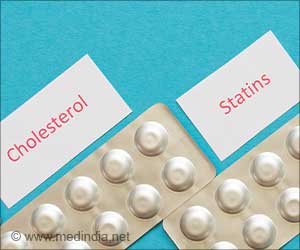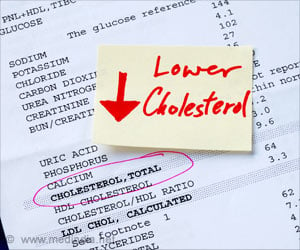US researchers have identified in mice a compound that frees excessive cholesterol accumulated inside cells, according to a study published Monday.
The findings, published in the Proceedings of the National Academy of Sciences, lead the way to therapy for the Niemann-Pick type C disease (NP-C), an inherited disorder characterized by abnormally high cholesterol levels in all body organs.NP-C patients suffer from a genetic mutation causing excessive amounts of cholesterol accumulating in lysosomes, vesicles in cells, which leads to liver disease, dementia and neurodegeration.
The disease's onset usually comes in children aged three to 15. Most children diagnosed with NP-C die before age 20 and many die before age 10.
In its adult form, about 10 percent of cases, the disease manifests itself especially through neurological and psychological symptoms. Few people diagnosed with NP-C ever reach the age of 40.
"What we've shown is that very quickly after administration of this compound, the huge pool of cholesterol that has just been accumulating in the cells is suddenly released and metabolized normally," said John Dietschy, senior author of the study.
"With just one dose, you excrete a large portion of this pool of cholesterol."
Advertisement
Shortly after receiving the injection, the mice that received CYCLO began to process cholesterol just like the healthy mice.
Advertisement
"The key idea is that we appear to have overcome the transport defect in the lysosome that is brought about by the genetic defect or mutation," said Dietschy, who has studied cholesterol metabolism for almost 50 years.
But Dietschy, a professor of internal medicine at the University of Texas Southwestern, warned that the findings were not a cure for NP-C.
"We do not yet understand what is happening at the molecular level, but it is clear that this compound somehow overcomes the genetic defect that causes individuals to accumulate cholesterol," he said.
The next step for Dietschy's investigation is to determine how much CYCLO concentration is needed to trigger the release of cholesterol. The researchers also hope to determine how much CYCLO can lengthen the life span of animals and how long the drug's effects last.
"Now we want to see what happens if we give it every week," said Dietschy. "Can we maintain low cholesterol levels? That's what we're looking at now."
Source-AFP
SRM












